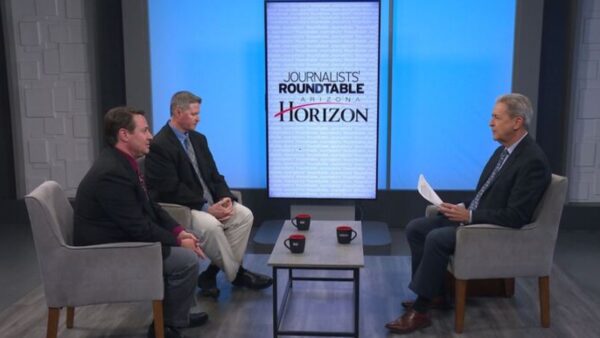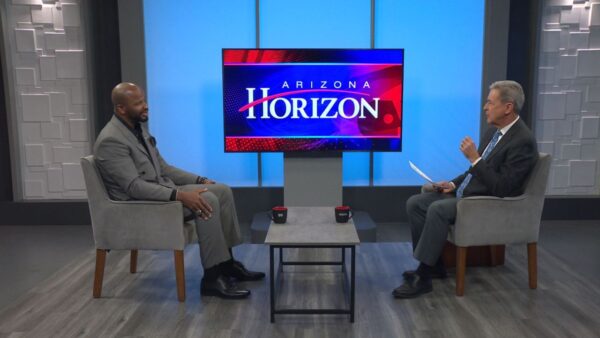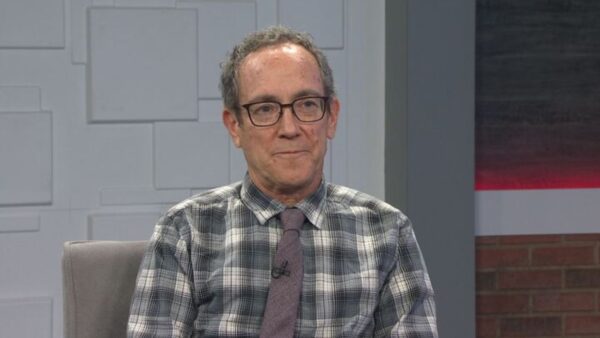Sociologist Hilary Levey Friedman has written a book titled “Playing to Win: Raising Children in a Competitive Culture.” It looks at the role of after-school competitive activities in future life success. Friedman’s book also examines gender roles in competitive activities. Friedman will talk about her book and concepts.
Ted Simons: Playing to win: Raising Children in a Competitive Culture. That's the title of a new book focusing on the increasing role of after-school competitive activities in the lives of children. I spoke with the book's author, sociologist, Hilary Levey Friedman. Good to have you here. Thanks for joining us.
Hilary Levey Friedman: Thanks for having me.
Ted Simons: Playing to win. Just the book's title encompasses a lot of what we're going to talk about here Why did you pick that title?
Hilary Levey Friedman: That's what kids are doing these days. It's play, it's fun, but there's a lot at stake. Winning is really important. You know, all of the 95 parents that I met while researching this book, they want their kids to win.
Ted Simons: Let's talk about previous generations, previous parents. What we kind of were raised with. How is that different than what we're seeing right now?
Hilary Levey Friedman: One thing that's very different today is that kids are playing in an organized way and it's being organized by adults. That's a change. Kids used to go out and play on the sand lot, in the field. It was very competitive. But now that adults have sort of gotten involved, they keep track of things, there are records, adults are referees, that's a major change.
Ted Simons: Are those changes good or bad?
Hilary Levey Friedman: Well, it's a mix of both. We certainly have the misbehavior of adults, parents and coaches. Sometimes on soccer fields, but at the same time it can teach kids, well, there is going to be a record kept and you should care how you perform and it matters there's a track record of success.
Ted Simons: Is there a loss in the sense of for lack of better word creativity or the ability to just socialize, getting along with each other when you have to do it yourself as opposed to mom and dad and coach putting it all together.
Hilary Levey Friedman: The socialization I don't worry about. Chapter 6 is just based on my interviews with kids. The thing they highlight that they love is the friends they make, especially friends who go to other schools. The socialization I worry less about. Creativity is a different story. It's something that we should be concerned about. It's a common trope that we talk about in the educational system today, are kids too caught up in standardized tests, rope memorization. Unfortunately we don't know if it matters or not. Just as I was finishing this research the iPad for kids came into vogue. So we had one dad says his daughter is always bored in the car. I would say they just pull out the devices. I would worry more about that than organized activity.
Ted Simons: Indeed. So as far as competition now, we have critics now saying there are sports where there are no winners and losers and every kid gets a trophy and that's not a good thing. Others say it builds self-esteem. Where do you fall on that, and is there too much competition?
Hilary Levey Friedman: In America we live in a nation of extremes. We go from everyone is a winner, participation trophy, to only one winner and the trophy has to be bigger than the child. It's funny we can have such competing notions in American childhood today. I do feel that the participation trophies are not the best message to be sendig to kids. Why is that? First of all the kids are very savvy. They know those trophies don't mean much. Maybe the first one means something but quickly it becomes clear, I didn't really win that. Why does someone have a bigger trophy? Kids get it. We don't want to sends the message they can't trust adults. A lot of psychological research indicates that when you introduce an extrinsic reward like a trophy it decreases the intrinsic motivation kids have. A child may love to play chess or soccer but once you introduce a trophy next time they will say, hey, what do I get? They may not want to do it just for the love of it.
Ted Simons: When is competition beneficial? When is competition harmful?
Hilary Levey Friedman: Well, every child is different. Even within the same family. I'm expecting my second boy. They may not be the same personality type. Some children are just naturally more competitive. So if you have a child who is not very competitive at all, you might think about getting them involved in an activity that's not head-to-head competition. For example, with chess, you're against your opponent and there's almost always a winner and loser, where with dance when you go to competition you're part of a group. Everyone gets something. So it's less of a one, two, three, four. It's very clear how that ranks. If your child complains about a stomach ache every week going, that's probably a red flag. This is not the right outlet for your child but there are many benefits to being exposed to competition at a young age. I believe it's important for kids to learn how to perform under time pressure when the stakes are not as high. When they're in grade school is a safe environment in which to fail. Let's face it, we're all going to fail.
Ted Simons: Looking back on my childhood and previous generations, we didn't have so much structure, yet a lot of us learned these lessons eventually. I keep thinking of the parents who pipe in Beethoven to the crib. This is going to make the kid go to Harvard by the time he's six years old. Are we going too far with the benefits of competition without realizing that kids will sort it out eventually?
Hilary Levey Friedman: That is true, by our very nature human beings are competitive. We're social, always comparing ourselves to other people. So really the root cause of this is more the stories that have come out about increased difficulty in getting into college, let's say. Even though that's ten years down the road, parents start panicking, what if my child doesn't get into college? Certainly in the economy today we know how important a college degree is. That gets pushed down into younger and younger ages and let's take soccer as an example, you know it used to be you could walk on to the soccer team in high school. That would basically be unheard of these days because kids are developing that foot-eye coordination at such a young age. How can you compete with kids who have been doing that earlier an earlier? Basically all the parents I met ask should we be doing this, but no one is willing to take the chance and say let's just see what happens. You don't want to not give your child every opportunity.
Ted Simons: Who are some of the people you interviewed, how is that impacting today's families, today's schools? How is it impacting today's kids?
Hilary Levey Friedman: One of the biggest effects on family life is a lot of family meals are taking place in a minivan. So those conversations that you might have had just sitting down, even learning table manners, most nights of the week you're on the go. That's a big problem. There's also leisure time for parents. This becomes their leisure. Reading maybe on the sidelines of a soccer game or becoming friends with parents whose children are doing similar activities. There's a loss of time together as a family and time as an individual. That is worrisome.
Ted Simons: Is there also a loss of broad based exposure to sports? When I was a kid you played all the sports and figured out you're better at this, not as good at. That seems like kids are specializes the minute they start walking these days.
Hilary Levey Friedman: That's true. I don't lay the blame at the foot of parents. This is coming from other adults involved in a lot of sports. So often there's an overlap in seasons. Let's take soccer and Lacrosse. The child may say, can I be a half hour late or 15 minutes late for a practice one day a week and the coach says no, if you do that I'm not going to play you on the game this weekend. Other people are forcing kids to specialize. There are serious concerns about that in terms of working different muscles in the marked for identification, children developing overuse injuries that we have not seen before.
Ted Simons: What do you want folks to take from your book?
Hilary Levey Friedman: First I want parents to understand that it's up to them to ask questions at the beginning. To say, what is the best opportunity for my child? I'm going to expose them to lots of options but listen to my child, ask them questions and find out what they are interested in. Second, about asking questions, when you sign up for any class you should know who is the teacher or coach. What is their training, what is their background? Forget about Jerry Sandusky. Do they know the proper way to teach my child and for the age they're at. Most importantly, if you ask the right questions and trust that coach or teacher you should step back and let them take the lead and let them teach your child. Try not to interfere too much. That's a lot of what's wrong with sports today.
Ted Simons: Interesting stuff. I imagine a lot of parents are not even cognizant of what's happening as far as the changing nature of childhood. It's good to have you.
Hilary Levey Friedman: Thank you.
Hilary Levey Friedman: Sociologist and Author, "Playing to Win: Raising Children in a Competitive Culture";




















